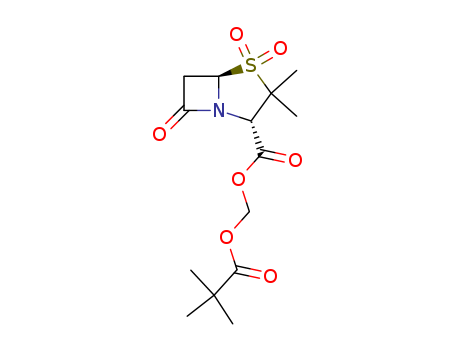health care products Phosphatidylserine (PS) CAS NO.51446-62-9
- FOB Price: USD: 165.00-165.00 /Kilogram Get Latest Price
- Min.Order: 25 Kilogram
- Payment Terms: L/C,D/A,D/P,T/T,Other
- Available Specifications:
50% by HPLC(100-500)Kilogram
- Product Details
Keywords
- Phosphatidylserine (PS) powder
- PS CAS:51446-62-9
- brain healthcare Phosphatidylserine (PS)
Quick Details
- ProName: health care products Phosphatidylserin...
- CasNo: 51446-62-9
- Molecular Formula: C13H24NO10P
- Appearance: Light Yellow Powder
- Application: used for Alzheimer disease, dementia, ...
- DeliveryTime: within 7-10 days after order
- PackAge: 25kg/drum
- Port: Beijing/Shanghai/Hangzhou/Shenzhen
- ProductionCapacity: 10 Metric Ton/Month
- Purity: 50%, 70% up by HPLC
- LimitNum: 25 Kilogram
- Heavy Metal: < 20ppm
- L-α-Phosphatidyl-L-Serein: ≥?50.0%
- L-α-Phosphatidylcholine: ≤12.0%
- L-α-Phosphatidylethanolamine: ≤ 10.0%
- L-α-Phosphatidylinositol: ≤ 5.0%
Superiority
1) Specialized in pharmaceutical industry since from 1987
2) ISO 9001:2015 & SGS audited supplier
3) Accept better payment terms : T.T 30-60 days.on the basic of pass SINOSURE credit investigation.
5) We have warehouse in USA with quickly shipment .
6) We can do different terms of FOB ,CIF/CIP ,DDP ...
Details
|
Product Information |
|
Product name |
Phosphatidylserine / PS |
|
CAS No. |
51446-62-9 |
|
Molecular Formula |
C13H24NO10P |
|
Source |
Soybean; Sunflower seed |
|
Quality Standard |
50%, 70% up by HPLC, Food Grade |
|
Appearance |
Light yellow powder |
|
COA of Phosphatidylserine / PS |
|
Items |
Requirements |
Results |
TEST METHOD |
|
Appearance |
Light Yellow Powder |
Complies |
Visual |
|
Odor |
Characteristic |
Complies |
Organoleptic |
|
Water (KF) |
≤ 5.0% |
0.85% |
/ |
|
Peroxide value |
≤ 10 meq/kg |
Complies |
CP2005 |
|
Heavy Metals |
< 20ppm |
Complies |
CP2005 |
|
As |
< 2ppm |
Complies |
AAS |
|
Total Plate Count |
< 1000cfu/g |
170 cfu/g |
CP2005 |
|
Yeast & Mold |
< 100 cfu/g |
40 cfu/g |
CP2005 |
|
E. Coli |
Negative |
Complies |
CP2005 |
|
Salmonella |
Negative |
Complies |
CP2005 |
|
Assay |
|||
|
L-α-Phosphatidyl-L-Serein |
≥ 50.0% |
51.32% |
HPLC |
|
L-α-Phosphatidylcholine |
≤12.0% |
11.05% |
HPLC |
|
L-α-Phosphatidylethanolamine |
≤ 10.0% |
8.31% |
HPLC |
|
L-α-Phosphatidylinositol |
≤ 5.0% |
4.17% |
HPLC |
|
Usage |
What is Phosphatidylserine
Phosphatidylserine (abbreviated Ptd-L-Ser or PS) is a phospholipid and is a component of the cell membrane. It plays a key role in cell cycle signaling, specifically in relationship to apoptosis.
Phosphatidylserine is a chemical that is present in the human body. The body can make phosphatidylserine, but most of what it needs comes from foods. Phosphatidylserine can also be taken as a supplement. These supplements were once made from cow brains.Now they are commonly made from cabbage or soy.
Phosphatidylserine is used for Alzheimer disease, dementia, decline in memory and thinking skills that occurs normally with age,athletic performance, and many other conditions, but there is no good scientific evidence to support most of these uses.
Function of Phosphatidylserine
1. Decline in memory and thinking skills that occurs normally with age. Phosphatidylserine seems to improve attention, language skills, and memory in aging people with declining thinking skills. Most research has used phosphatidylserine from cow brains.But most phosphatidylserine supplements are now made from soy or cabbage. There is limited research showing that plant-derived phosphatidylserine also improves memory in people with age-related memory loss. Taking phosphatidylserine might also reduce person's risk for a decline in memory and thinking skills with age. But research is limited and unclear.
2. Alzheimer disease. Taking phosphatidylserine can improve some of the symptoms of Alzheimer disease after 6-12 weeks of treatment. It seems to work best in people with less severe symptoms. But phosphatidylserine might become less effective over time. After 16 weeks of treatment, progression of Alzheimer disease seems to overcome any benefit provided by phosphatidylserine.Most research has used phosphatidylserine from cow brains. But most phosphatidylserine supplements are now made from soy or cabbage. Researchers do not yet know how phosphatidylserine made from these plant sources compares with phosphatidylserine made from cow brains in terms of effectiveness for Alzheimer disease.


 Diamondsupplier
Diamondsupplier 




